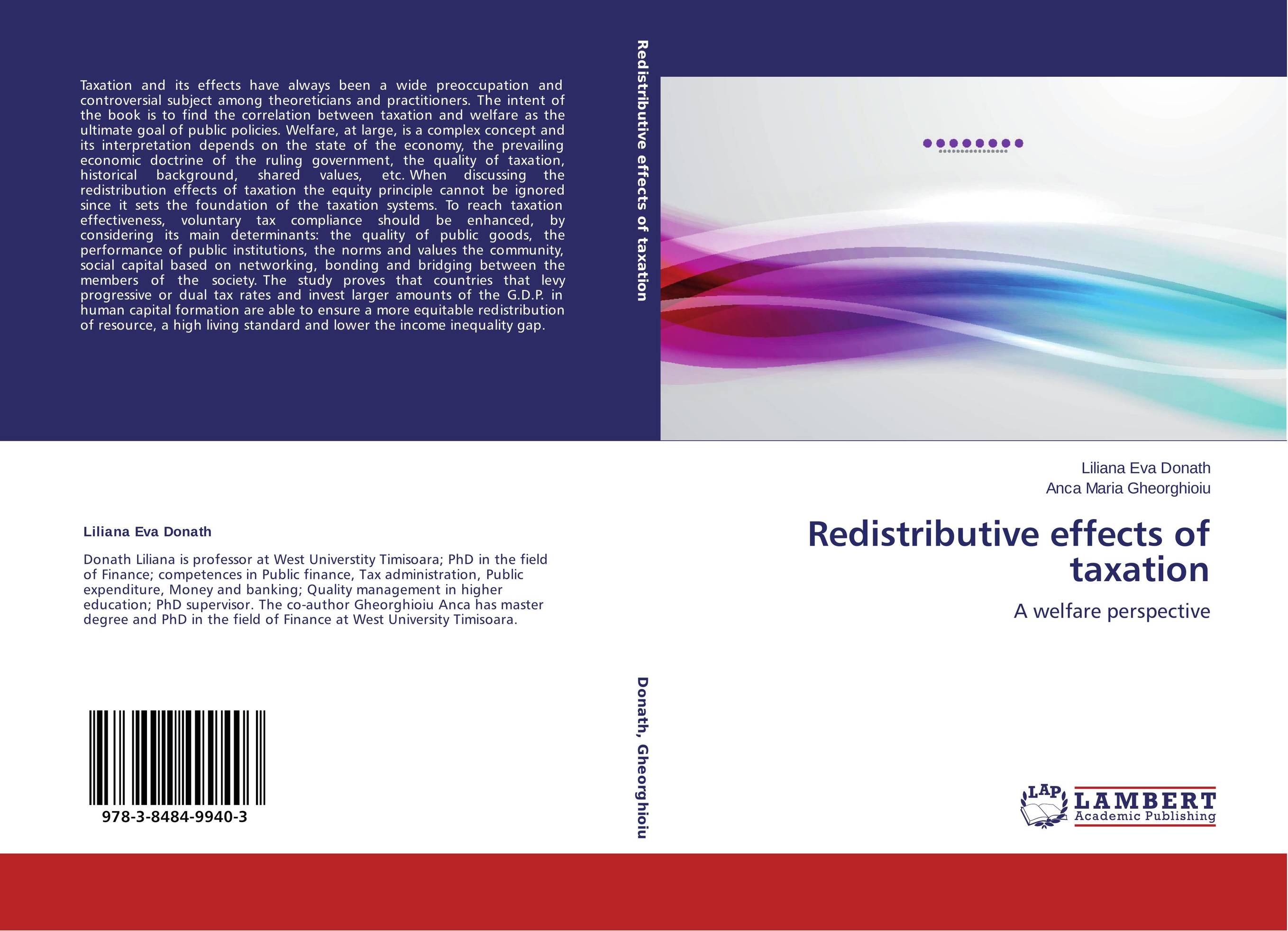| Поиск по каталогу |
|
(строгое соответствие)
|
- Профессиональная
- Научно-популярная
- Художественная
- Публицистика
- Детская
- Искусство
- Хобби, семья, дом
- Спорт
- Путеводители
- Блокноты, тетради, открытки
Redistributive effects of taxation. A welfare perspective

В наличии
| Местонахождение: Алматы | Состояние экземпляра: новый |

Бумажная
версия
версия
Автор: Liliana Eva Donath and Anca Maria Gheorghioiu
ISBN: 9783848499403
Год издания: 2014
Формат книги: 60×90/16 (145×215 мм)
Количество страниц: 136
Издательство: LAP LAMBERT Academic Publishing
Цена: 36556 тг
Положить в корзину
| Способы доставки в город Алматы * комплектация (срок до отгрузки) не более 2 рабочих дней |
| Самовывоз из города Алматы (пункты самовывоза партнёра CDEK) |
| Курьерская доставка CDEK из города Москва |
| Доставка Почтой России из города Москва |
Аннотация: Taxation and its effects have always been a wide preoccupation and controversial subject among theoreticians and practitioners. The intent of the book is to find the correlation between taxation and welfare as the ultimate goal of public policies. Welfare, at large, is a complex concept and its interpretation depends on the state of the economy, the prevailing economic doctrine of the ruling government, the quality of taxation, historical background, shared values, etc. When discussing the redistribution effects of taxation the equity principle cannot be ignored since it sets the foundation of the taxation systems. To reach taxation effectiveness, voluntary tax compliance should be enhanced, by considering its main determinants: the quality of public goods, the performance of public institutions, the norms and values the community, social capital based on networking, bonding and bridging between the members of the society. The study proves that countries that levy progressive or dual tax rates and invest larger amounts of the G.D.P. in human capital formation are able to ensure a more equitable redistribution of resource, a high living standard and lower the income inequality gap.
Ключевые слова: Social capital, inequality, taxation, Redistribution, Social capital, inequality, welfare, taxation, Redistribution



